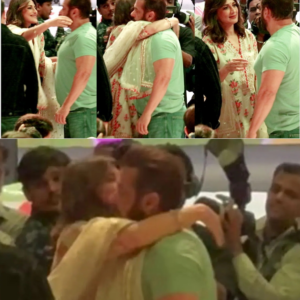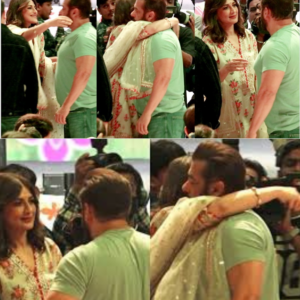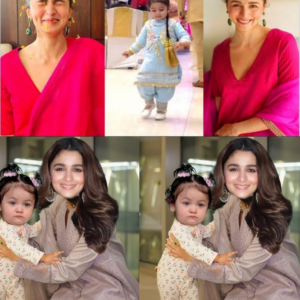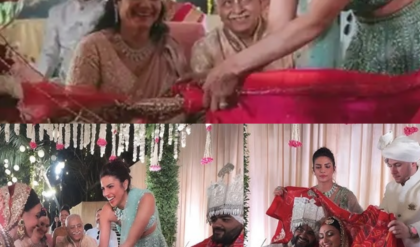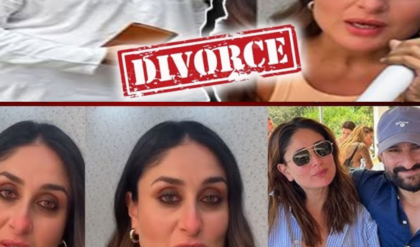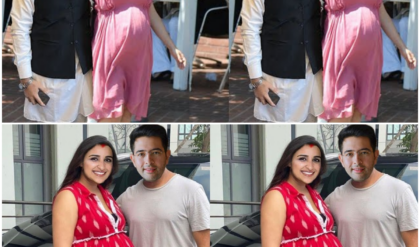Virat Kohli & Anushka Sharma Take Strict Action Against Ranveer Allahbadia: India’s Got Latent Issues
In the world of Indian entertainment, where celebrity marriages and relationships are followed with intense scrutiny, the recent tension between Virat Kohli, Anushka Sharma, and popular YouTuber Ranveer Allahbadia has ignited considerable media attention. The situation, which seems to have its roots in an incident or series of comments, has sparked debates about privacy, respect, and the responsibilities of influencers, as well as the latent issues surrounding the treatment of celebrities in India.
This report seeks to explore the nature of the conflict, the actions taken by Virat Kohli and Anushka Sharma, and the wider implications of such celebrity feuds on Indian society. It will also examine how public figures navigate the complicated intersection of personal and professional lives in an era dominated by social media, online influence, and sensationalism.
Background of the Incident
Virat Kohli, a cricket superstar, and Anushka Sharma, a renowned Bollywood actress, have long been a beloved couple in India. Their marriage in 2017 was one of the most talked-about events in Indian celebrity circles. Both Kohli and Sharma have maintained a relatively private life, despite the public’s insatiable desire to know more about their personal affairs.
Ranveer Allahbadia, better known as BeerBiceps, is a widely followed YouTuber and social media influencer. His online presence covers a broad range of topics, including fitness, lifestyle, and self-improvement. However, Allahbadia is also known for making bold and sometimes controversial statements.
The tension reportedly began when Ranveer Allahbadia made disparaging comments about Virat Kohli and Anushka Sharma on his podcast. While the specific remarks have not been entirely disclosed, the general sentiment expressed was deemed inappropriate by the couple. Kohli and Sharma, having been accustomed to the public’s fascination with their lives, had reached their limit and decided to take action.

Virat Kohli and Anushka Sharma’s Response
Both Virat Kohli and Anushka Sharma have long been known for their dignified and calm public personas. However, this time they chose to take a more aggressive stance in defending their privacy and reputation. The couple issued a statement through their respective social media handles, making it clear that they would not tolerate any form of disrespect or defamatory remarks.
The statement included a call for a change in how influencers, celebrities, and the general public interact online. They emphasized the importance of responsibility in wielding the power of social media, particularly when it comes to influencing young and impressionable audiences. Their message was one of empowerment and self-respect, urging influencers and content creators to be mindful of the consequences of their words and actions.
In addition to their public statement, it is understood that Kohli and Sharma sought legal counsel regarding the matter. This could potentially lead to further legal actions if the situation escalated. Legal recourse in cases of defamation, cyberbullying, or harassment is not uncommon in India, where celebrities are often subjected to harmful online rhetoric.
The Impact on Ranveer Allahbadia’s Reputation
Ranveer Allahbadia’s podcast, which often discusses topics related to motivation and success, has gained a significant following among young people. His controversial remarks have resulted in widespread discussions about the ethical responsibility of social media influencers. Allahbadia, known for his charismatic presence, found himself at the center of a media storm.
While Allahbadia has since apologized for his comments, the damage to his reputation may not be easily undone. Public figures in India, especially those who cater to a young demographic, are expected to act as role models. When they cross lines of decency or respect, they can quickly lose the support of their audience. In this case, Allahbadia’s initial comments were perceived by many as crossing that line.
The apology issued by Allahbadia was seen as a desperate attempt to salvage his image, but the sincerity of the apology was questioned by some of his followers. This brings to light a critical aspect of modern celebrity culture: influencers are often judged not only by their content but also by their authenticity in owning up to their mistakes.
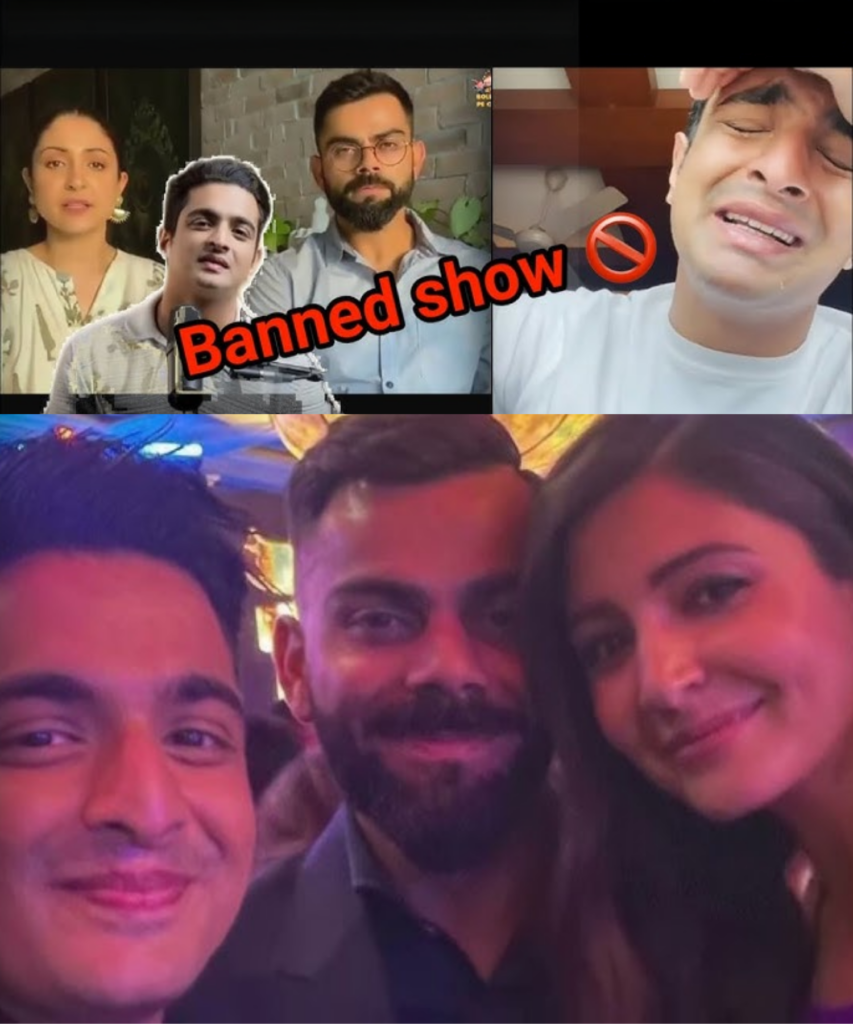
The Latent Issues in India’s Celebrity Culture
This incident highlights several latent issues in the broader context of celebrity culture in India, particularly the treatment of public figures by both the media and the general public. Celebrities like Kohli and Sharma, despite their immense popularity and success, are frequently subjected to intrusive media coverage and online trolling.
The influence of social media has exacerbated this issue, allowing public figures to be dissected by millions of people in real-time. It has blurred the lines between public and private life, with very few individuals able to maintain a degree of separation from their celebrity status.
Moreover, the rise of social media influencers and YouTubers, many of whom have enormous followings, has led to the creation of a new kind of power dynamic. These influencers, who often don’t follow the same codes of conduct as traditional media, can easily dominate public conversations, making it harder for celebrities to maintain their own narrative.
This incident also underscores the growing concerns regarding cyberbullying and harassment, which have increasingly become part of the discourse around social media in India. Celebrities, like everyone else, are susceptible to online hate, which can take a toll on their mental health and overall well-being.
Legal and Ethical Considerations
While public figures are often expected to have a thick skin, there are legal frameworks in India designed to protect individuals from defamation and harassment. The couple’s decision to take legal action could serve as a precedent for other celebrities who face similar challenges.
Defamation laws in India can be used by both public figures and ordinary citizens to protect their reputation. Under Section 499 of the Indian Penal Code, a defamatory statement is one that harms the reputation of a person. If proven, defamation charges can lead to significant legal consequences, including fines and imprisonment.
Moreover, with the growing prevalence of social media, India has also implemented various cyber laws to protect individuals from online abuse and harassment. These laws are becoming increasingly important as social media platforms like Instagram, Twitter, and YouTube dominate public discourse.
The Future of Influencer-Celebrity Relationships
The incident between Virat Kohli, Anushka Sharma, and Ranveer Allahbadia may set a precedent for how future conflicts between influencers and celebrities are handled. This could lead to a heightened sense of accountability for those who have large followings and wield significant influence online. The situation could also lead to greater efforts from both the government and social media platforms to regulate online behavior.
It is likely that in the future, influencers and celebrities will find new ways to coexist in the public eye, potentially with more clear guidelines on what is considered acceptable behavior. The evolving nature of social media means that the lines between entertainment, personal lives, and public responsibility will continue to be tested.
Conclusion
In conclusion, the incident between Virat Kohli, Anushka Sharma, and Ranveer Allahbadia highlights the complex dynamics of celebrity culture in India. It raises important questions about privacy, the power of social media, and the ethical responsibilities of influencers. Kohli and Sharma’s decision to take strict action shows that even the most successful celebrities are not immune to the impact of online negativity and defamation.
While this incident may be one of many, it has the potential to spark a broader conversation about the ways in which public figures and influencers navigate the fine line between fame and personal privacy. As India’s celebrity culture continues to evolve in the digital age, it is clear that the treatment of celebrities—and the respect of their boundaries—will remain a critical issue for both the media and the public to address.
With the rise of new forms of online influence and celebrity-driven content, the future of Indian entertainment and influencer culture will likely face many more challenges. This situation could serve as a reminder for both influencers and fans to consider the impact of their words and actions, both online and offline, on those who live their lives under the constant scrutiny of the public eye.
News
Salman Khan Stands Up and Embraces Sonali Bendre at Eco-Conscious Ganesh Event
Salman Khan Respectfully Gets Up & Hugs Sonali Bendre at Eco-Friendly Ganesh Promotion In a heartwarming and respectful display of camaraderie, Bollywood superstar Salman Khan was recently spotted getting up and embracing his dear friend and actress Sonali Bendre…
Salman Khan Shows Respect as He Hugs Sonali Bendre at Eco-Friendly Ganesh Promotion
Salman Khan Respectfully Gets Up & Hugs Sonali Bendre at Eco-Friendly Ganesh Promotion In a heartwarming and respectful display of camaraderie, Bollywood superstar Salman Khan was recently spotted getting up and embracing his dear friend and actress Sonali Bendre…
Salman Khan Respectfully Gets Up & Hug Sonali Bendre At Eco Friendly Ganesh Promotion
Salman Khan Respectfully Gets Up & Hugs Sonali Bendre at Eco-Friendly Ganesh Promotion In a heartwarming and respectful display of camaraderie, Bollywood superstar Salman Khan was recently spotted getting up and embracing his dear friend and actress Sonali Bendre…
Alia Bhatt Reveals Daughter Raha Kapoor’s Face for the First Time at Wedding Celebration
Alia Bhatt’s Daughter Raha Kapoor’s Face Reveal at a Friend’s Wedding Ceremony Alia Bhatt, one of the leading actresses in Bollywood, and her husband, actor Ranbir Kapoor, welcomed their first child, a daughter named Raha Kapoor, in November 2022….
Alia Bhatt Shares First Glimpse of Daughter Raha Kapoor at Friend’s Wedding Ceremony
Alia Bhatt’s Daughter Raha Kapoor’s Face Reveal at a Friend’s Wedding Ceremony Alia Bhatt, one of the leading actresses in Bollywood, and her husband, actor Ranbir Kapoor, welcomed their first child, a daughter named Raha Kapoor, in November 2022….
Alia Bhatt Daughter Raha Kapoor’s Face Reveal with mom Alia Bhatt at her Friends wedding Ceremony
Alia Bhatt’s Daughter Raha Kapoor’s Face Reveal at a Friend’s Wedding Ceremony Alia Bhatt, one of the leading actresses in Bollywood, and her husband, actor Ranbir Kapoor, welcomed their first child, a daughter named Raha Kapoor, in November 2022….
End of content
No more pages to load
